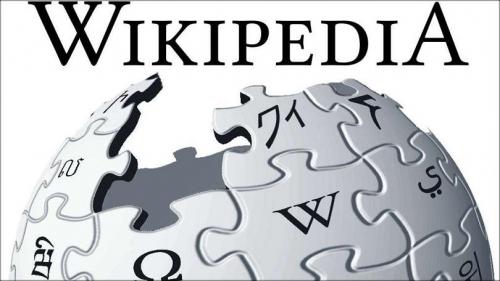 “Wikipedia and the Democratization of Academic Knowledge” is a National Science Foundation (NSF) funded study of how academics and academic subjects are represented on Wikipedia. The study is being directed by Professors Julia Adams of Yale University and Hannah Brückner of NYU Abu Dhabi. NSF funding for this and other research projects follows after rigorous peer review.
“Wikipedia and the Democratization of Academic Knowledge” is a National Science Foundation (NSF) funded study of how academics and academic subjects are represented on Wikipedia. The study is being directed by Professors Julia Adams of Yale University and Hannah Brückner of NYU Abu Dhabi. NSF funding for this and other research projects follows after rigorous peer review.
The National Science Foundation has recently been criticized for funding this and other university-based scientific research. The criticisms of the Wikipedia project are centered on two main complaints. The first questions the use of tax-payer monies for research allegedly not in the national interest. The second set of criticisms takes issue with one specific research question posed by the researchers: are male and female academics fairly represented on Wikipedia?
Why might it be in the national or global interest to better understand how Wikipedia represents academics and academic knowledge? Since its launch in 2001, Wikipedia has become the world’s single most important reference tool and information clearinghouse. It was the 6th most visited website in the world as of June 2014, and it currently includes over 33 million articles in 288 languages. It is widely used in American and other countries’ secondary schools and universities. It is an important go-to site for many students who are trying to learn about topics that are new to them. Knowledge is power, as the adage has it, and a well-informed citizenry is the basis of a vibrant economy and strong democracy; thus serious academic research on Wikipedia stands to benefit everyone.
Adams and Brückner’s research focuses on how Wikipedia represents the academic enterprise as a window into the shaping of knowledge more generally. The research is meticulously comparing the structure and demography of scientific, humanities and social scientific disciplines with their Wikipedia entries to better understand the development of the online encyclopedia. Unlike a traditional reference book produced by a team of professional writers and editors, Wikipedia is the product of volunteers. New entries are proposed by members of the Wikipedia community. Administrators may challenge a page if the page doesn’t meet certain criteria. If the argument for the page’s existence is deemed insufficient, the page is deleted. This system democratizes knowledge but also presents risks. Wikipedia contributors may be ill-informed about some subjects, and disputes over content among Wikipedia editors may not always result in high-quality articles.
With respect to how it represents women and their contributions to society, the encyclopedia has long been controversial. If Wikipedia reproduces or amplifies gender inequity present in the real world (one of the questions the researchers are examining), it also presents a rich opportunity for improvement, precisely because it reaches so many people worldwide.
Julia Adams
Professor of Sociology and International and Area Studies
Yale University
November 1, 2014